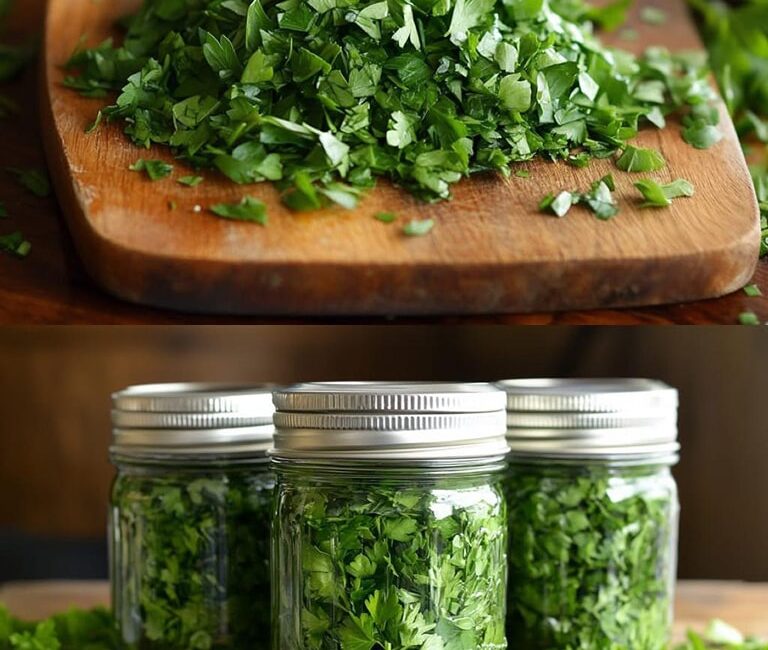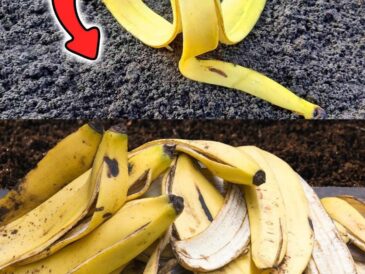Fresh herbs can elevate any dish, leaving a fragrant imprint that tantalizes the taste buds. Of all the herbs available, parsley, basil, and coriander hold a special place in the hearts (and kitchens) of cooks around the world. But there’s nothing more disheartening than finding your once-vibrant herbs wilted and lifeless just days after purchasing them. Luckily, with a few tried-and-true tips, you can significantly extend the freshness of these culinary companions and ensure they remain as delightful as the day you bought them.
Understanding the Nature of Fresh Herbs
Before diving into preservation methods, it’s essential to understand the nature of these herbs. Parsley, basil, and coriander possess distinctive characteristics affecting their longevity.
- Parsley: With its robust, leafy structure, parsley is a biennial herb that often thrives in colder climates. It can last longer than softer herbs if treated correctly.
- Basil: Basil is an annual herb and is particularly sensitive to cold. It can wilt quickly, especially if exposed to refrigeration, which causes its delicate leaves to turn black.
- Coriander (Cilantro): Coriander features tender leaves that deteriorate rapidly. It is best stored in a manner that mimics its natural growing conditions—ideally moist but not soggy.
Essential Tips for Keeping Parsley, Basil, and Coriander Fresh
1. Choosing Quality Herbs
The first step to ensuring longevity is selecting herbs of the highest quality. When purchasing parsley, basil, or coriander, look for vibrant colors and firm leaves. Avoid any that appear yellowed or wilted, as these are likely signs of age. If possible, buy from local farmers’ markets or grocery stores that prioritize fresh produce.
2. Prepping Your Herbs
Once you have your fresh herbs, it’s imperative to prepare them properly:
- Trim the Stems: For parsley and coriander, cut about half an inch off the stems at a diagonal angle. This allows for better water absorption.
- Remove Any Damaged Leaves: Check for any wilted or yellowed leaves and remove them. These can cause the rest of the herb to spoil faster.
3. Storing Methods
A. The Water Method
One of the best practices for keeping parsley, basil, and coriander fresh is to store them in water, similar to how you might store flowers.
- Fill a Jar or Glass with Water: Use a jar or glass that can accommodate the height of the herbs.
- Place the Herbs in Water: Insert the herbs into the water, ensuring that the stems are submerged but that leaves remain above the surface.
- Cover with a Plastic Bag: Loosely cover the herbs with a plastic bag to create a humid environment that retains moisture without suffocating the herbs.
- Store in the Fridge: For parsley and coriander, this method works beautifully when the herbs are placed in the fridge. For basil, however, store it at room temperature away from direct sunlight.
B. The Damp Paper Towel Method
For an alternative approach, using a damp paper towel can help preserve your herbs—especially effective for thinner herbs like basil and coriander.
- Moisten a Paper Towel: Lightly dampen a paper towel and lay it flat on a plate or cutting board.
- Place the Herbs on the Towel: Arrange your herbs on the towel, ensuring they are not overcrowded.
- Roll it Up: Roll the towel gently around the herbs to maintain their moisture.
- Store in a Plastic Bag: Place the rolled-up towel in a resealable plastic bag, and store it in the fridge (except for basil, which prefers warmer conditions).
C. The Freezer Method
If you’re concerned that your herbs might not be used quickly enough, freezing is an excellent option; it allows you to enjoy their flavors long after you’ve harvested or purchased them.
- Wash and Dry the Herbs: Rinse them thoroughly and allow them to dry completely.
- Chop Finely: If desired, chop the herbs to your preferred size.
- Ice Cube Trays: Place the chopped herbs into ice cube trays and cover them with olive oil or water. This method allows you to pop out portion-sized amounts whenever needed.
- Store in the Freezer: Once frozen, you can transfer the herb cubes to an airtight container or freezer bag for long-term storage.
4. Understanding Temperature Sensitivities
As mentioned earlier, basil is especially sensitive to cold conditions. Avoid refrigerating basil as much as possible. It’s best kept on the kitchen counter. Conversely, parsley and coriander can thrive in cooler environments.
5. Regular Check-Ups
Whether you’ve opted for the water method, damp paper towel, or another storage option, it’s essential to check your herbs regularly. Remove any yellowing leaves or stems that could lead to spoilage. Replace water in the jar as needed—this promotes longevity and freshness.
6. Utilizing the Herbs
Incorporate your herbs into various dishes before they reach the end of their life span. There are countless ways to use parsley, basil, and coriander in your cooking, from garnishing soups and salads to enhancing pasta dishes, salsas, and sauces.
Beyond Fresh: Preserving Herbs for Future Use
Preservation doesn’t only mean keeping herbs fresh but also finding ways to enjoy their flavors long after they have wilted. Consider these additional methods for long-term storage:
1. Drying
Drying is an age-old technique that results in concentrated flavor.
- Air Drying: Tie your herbs in small bundles and hang them upside down in a dark, dry, and well-ventilated area. After a few weeks, they will naturally dry out.
- Oven Drying: Lay your herbs on a baking sheet and place them in a low-temperature oven (around 170°F, or 75°C) for a few hours until they crumble easily.
- Dehydrators: If you have a dehydrator, it’s a fantastic tool for drying herbs efficiently.
- Storage: Once dried, store in airtight containers away from light for maximum flavor preservation.
2. Herb Pesto
Pesto is a versatile sauce that can be made with basil, parsley, or coriander and then frozen in small containers. Simply blend your herbs with nuts, garlic, oil, and cheese, and you’re ready to store a potent flavor bomb!
3. Flavor Infused Oils
You can also create flavored oils by infusing your herbs in a bottle of quality olive oil. This method not only preserves the essence of your herbs but also provides an aromatic addition to your dishes.
Conclusion
Keeping parsley, basil, and coriander fresh for a long time may seem daunting, but with these practical tips and tricks, you can enjoy vibrant, flavorful herbs in your culinary endeavors. Whether you choose to store them in water, damp paper towels, or venture into the world of freezing and drying, the key is to treat your herbs with care and respect. With these techniques in your culinary arsenal, you’ll reduce waste and enhance your dishes with fresh herb goodness, turning every meal into a wonderful gastronomic experience. So, grab your herbs, and start experimenting with these techniques today! Happy cooking!




